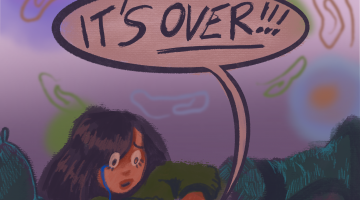Since the dawn of the 20th century, college campuses have been the birthplace of some of the most influential grassroots social and political movements in American history.
Some of these movements have gone on to spark pivotal social change and even challenge mainstream American culture on a national level. We cannot forget the civil rights movements at the University of California, Berkeley, the protests surrounding Kent State and even a movement against rape taking place at Columbia University right now. At the root of these movements are ideas founded gaining collective support. This is the reason petitioners come to college campuses: because it is the easiest way to spread ideas and organize support. The petitions represent the first symbolic effort in mobilizing support on certain social issues.
The University of Nevada, Reno campus is often home to petitions, which students may see as an annoyance, but they must realize that these groups represent an opportunity to impact the campus and community. That being said, students must also be knowledgeable of what they’re signing, and, if they do choose to sign, what impact that petition may have.
The value of one’s signature can become much more than a number in a tally for petitions. Your signature can be used to characterize your identity which may come back to bite you as it did to a student regent in Wisconsin who signed a petition to recall the governor who appointed him. Joshua Inglett signed a recall petition for Gov. Scott Walker in 2011 because he disagreed with the governor’s stance on education. Despite associating with the same political party, Inglett was removed from his position as a student representative on the Board of Regents by Walker simply because he had signed his name two years previous.
Using your signature to get rid of “annoying petitioners” also sends a message that you don’t want to learn about the cause. You are on a college campus to learn and grow; signing a petition without understanding the nuances of the argument runs completely counter to the educational process that our campus promotes. Instead, take the time to learn the pros and cons of a particular issue then make an informed decision on which side to choose.
After all, petitions have power to effect real change. If the marijuana petition currently on campus receives enough signatures, the state of Nevada will be able to vote on legalization in 2016; another petition started on this campus effectively banned puppy mills in Reno.
With a variety of issues ranging from the Affordable Care Act to abortion, it is your responsibility to come to an informed conclusion on issues because the petitioners will likely not be leaving anytime soon. The First Amendment is something that is used liberally on college campuses and it is one of the most important and protected amendments in American history. These petitioners have the right to be there as much as the students bustling through campus.
Students are not the only ones who should take note of petitioning protocol. Those that are expressing their views on marijuana, abortion or the afterlife should also be courteous of the students around them and should only expect the kind of reaction from students that they themselves project. How can those preaching about their cause expect any sympathy by acting as a rude elitist? Many petitioners have taken note of this by employing free food or using their friendliest of workers to gather the signatures.
However, appearance is not the most important thing to take into account when signing a petition; there are potential legal and political ramifications for petitions. Just because you may want to see marijuana legalized does not mean the petitioners are going about the process in a way you see fit. Read the fine print and come to an understanding about if you agree completely or not.
Your signature is a powerful tool if used correctly. On a personal level, you might be affecting the way potential employers see you in the future because those petitions are publicly accessible. On a political level, it could extend to a global cause. It’s no coincidence that you can very well “sign your life away to the devil” with one signature.
In this case, the pen is mightier than the sword.
The Sagebrush Editorial Staff can be reached at cboline@sagebrush.unr.edu.










